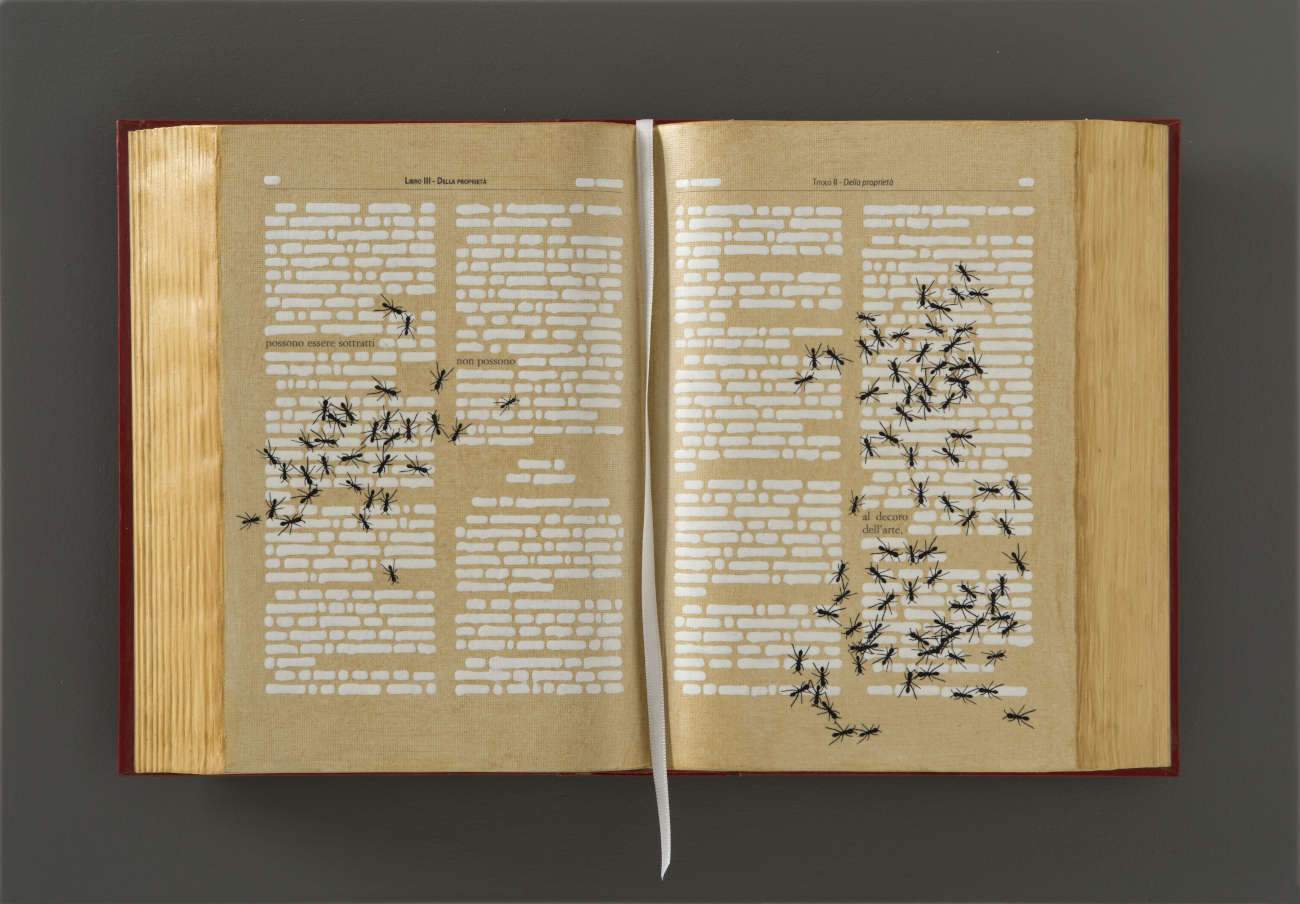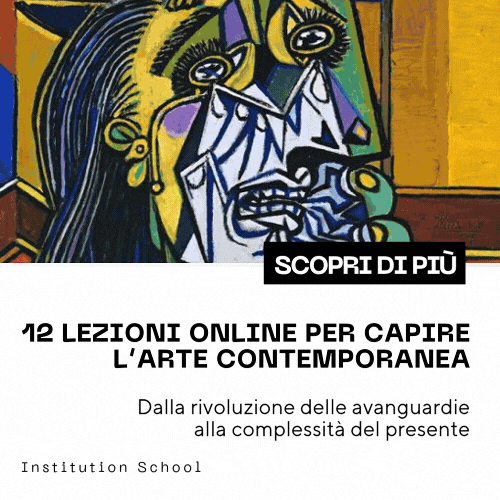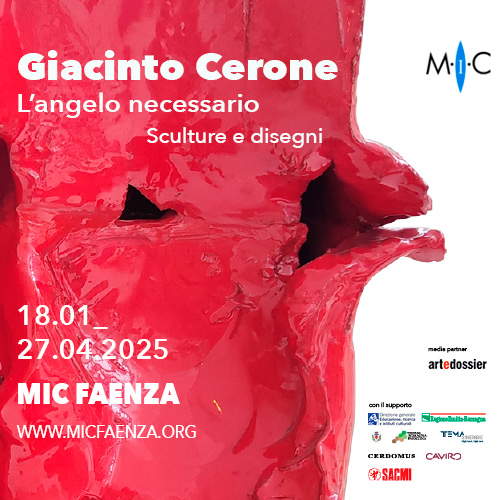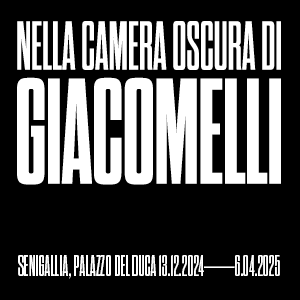Emilio Isgrò erases the Civil Code and the Penal Code. On display in Bologna
The Department of Legal Sciences at theUniversity of Bologna is hosting the exhibition Emilio Isgrò Cancellazione dei Codici - Civil and Criminal, curated by Renata Cristina Mazzantini, Lorenzo Balbi and Marco Bazzini, from Feb. 2 to 9, 2024, at the Palazzo Malvezzi venue. Promoted by Archivio Emilio Isgrò, in collaboration with MAMbo - Museo d’Arte Moderna di Bologna | Settore Musei Civici Bologna and Giuffrè Francis Lefebvre, under the patronage of the Department of Legal Sciences, Alma Mater Studiorum - University of Bologna, with the support of Galleria Gaburro and the contribution of UniCredit, the exhibition is part of the 12th edition of ART CITY Bologna, the institutional program of exhibitions, events and special initiatives promoted by the Municipality of Bologna in collaboration with BolognaFiere on the occasion of Arte Fiera.
The exhibition organized at Palazzo Malvezzi presents 29 legal texts, in particular the Civil Code and the Penal Code, on which Isgrò has intervened with his expressive code, that is, by erasing parts of the text, with the aim of proposing a different reflection on the meaning of common coexistence. Overcoming with the act of erasure the characteristics of the dry and strongly anti-poetic language proper to collections of legal norms, the artist has given rise to works with a strong formal impact. On an erased text in black and white, also crossed by a few ants, another characteristic of Isgrò’s works, the surviving words give voice to new interpretations of the text.
The Codices on which Isgrò intervened belong to the series of volumes specially produced by Giuffrè Francis Lefebvre, whose editors, experts in Law, collaborated with the artist before his intervention.
Enriching the exhibition is the erasure of The Speech of Pericles to the Athenians reported in Book II of Thucydides’ The Peloponnesian War. The artist intervened on three volumes of the speech of the Greek politician, orator and military man who led Athens in one of its heyday.
“I deleted the Civil Code and the Penal Code because without speech there is no law,” explains Emilio Isgrò,“ and without law there is no democracy. The first commitment of art is to discuss in a world that screams.”
“The erasure of the Codes,” says Renata Cristina Mazzantini, “confirms the intense relationship between Isgrò’s artistic research and his social militancy. Sensing a planetary crisis, Isgrò uses art, responsible to history, to defend democracy. Beginning with Athenian origins, he erases the most current legal literature, highlighting those words that best guarantee freedom and emancipation.”
“Very often, even in recent times,” Lorenzo Balbi points out, “there has been talk of erasure and removal in Bologna, and in this specific context and time Emilio Isgrò’s exhibition takes on an even more radical meaning. Erasure is a destructive and at the same time constructive act: destructive of the work, in the same way that its removal is, but at the same time a generator of debate and meaning. As Emilio Isgrò himself declares, ’One erases in order to unveil, not to destroy.’”
“Among the various red threads that run through Isgrò’s entire erasure corpus,” said Marco Bazzini, “it is possible to recover one that looked with particular attention to legal literature. The first erasures on this subject, in fact, are dated to the late 1960s and over time, in irregular time scansion, they recur until we arrive at these latest Codices that represent, staying on the subject, the last degree of it.”
Daria de Pretis and Francesco Viganò, jurists and judges of the Constitutional Court, have interpreted Isgrò’s Codices in two long, in-depth and original essays published in the catalog accompanying the exhibition published by Allemandi Editore. The volume also includes reproductions of the works exhibited in Bologna, installation views of the exhibition Cancellazione dei Codici inaugurated in May 2023 at Castel Capuano, home of the Scuola Superiore della Magistratura, in the presence of President of the Republic Sergio Mattarella, and an essay by Luigi Balestra.
Hours: Thursday, Feb. 1 (opening) from 6:15 to 8 p.m.; Friday, Feb. 2 to Friday, Feb. 9 from 10 a.m. to 7:30 p.m.
Free admission.
Image: Emilio Isgrò, Decoration Code (2022; mixed media on canvas printed on book and wood, 35 x 50.5 x 5 cm). Courtesy of Emilio Isgrò Archive.
 |
| Emilio Isgrò erases the Civil Code and the Penal Code. On display in Bologna |
Warning: the translation into English of the original Italian article was created using automatic tools. We undertake to review all articles, but we do not guarantee the total absence of inaccuracies in the translation due to the program. You can find the original by clicking on the ITA button. If you find any mistake,please contact us.





























